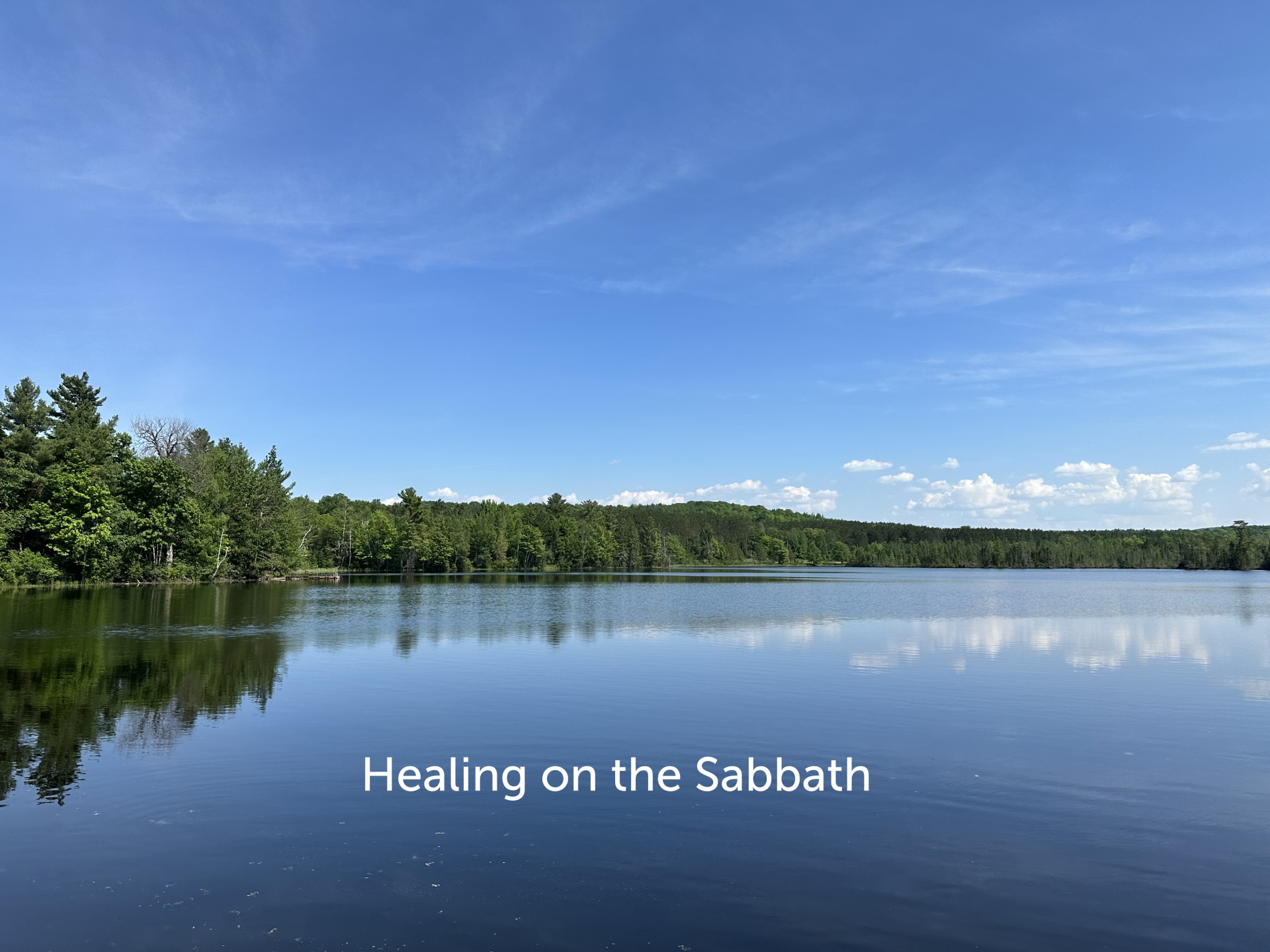The scenery was breathtaking, even beyond description. The air had such freshness, the greenery was so vibrant, and the sky was a brilliant blue. The water was crystal clear, and the woods were bright with light beaming through the leaves, and not only that it sounded like a bird sanctuary. Where is this place? Is this some tropical island paradise? Actually, it was Adam and Eve’s paradise home. As God, Adam, and Eve explored their new home the sun was slowly setting on that first Friday evening the sixth day of creation. As the stars began to appear, God proclaimed, “that He looked at everything He had created, and it was very good” (Gen. 1:31).
Then God finished His creation of “the heavens and the earth, and all the host of them” (Gen. 2:1).
We can only imagine how beautiful it was in the garden of Eden, but I am sure it was more beautiful than the most picturesque place on earth we experience now. So, was this the greatest gift that God gave mankind? Well not quite. The greatest gift He gave us was His Son and the privilege of a personal relationship with Him. He gave them and us the Sabbath, a day of special blessing and fellowship with our Creator.
The Sabbath is central to our worship of God, it is a memorial of creation, and it reveals why God is to be worshipped. He is to be worshipped because He is the Creator, and we are His creatures. Unfortunately, through Bible history the observance of the Sabbath became more ritual and burdensome. The Jewish leaders began to forbid even good works on the Sabbath, including healing. The Jewish law would only allow medical care if someone’s life was in danger. So, for instance if a wall fell on someone it could be cleared away just enough to help that person. A fracture could not be attended to, or a cut finger could be bandaged but no ointment was to be used until after the Sabbath. So, in other words the injury could be kept from getting worse but not better.
There are a lot more details we could get into, but we can see that the Sabbath being a joyful day to commune with God became a day of hardship. These man- made laws took the delight of the Sabbath and turned it into a day of legalism, trying not to break it in some way.
When Jesus and His disciples went into the synagogue, they observed a man with a shriveled arm (Mark 3). Of course, some people were there to spy on Jesus to see whether he would heal on the Sabbath and then they could accuse Him of breaking the law. But Jesus did not let them discourage Him. When Jesus saw the man, he motioned for him to come near, and with a voice of authority Jesus asks the congregation, “which is worse, to do good on the Sabbath or to do evil? Is it better to make someone whole on the Sabbath or to let them be miserable?” They all stared at Him not knowing how to respond, yet in their hearts they already knew what should and shouldn’t be done.
Jesus turns to the man and asks him to stretch out his arm the best he could, when suddenly it straightened itself out and became like the other one. With this the Pharisees bolted out of the church and went the Herodians to discuss how to get rid of Jesus. How dare Jesus heal on the Sabbath, this was totally unacceptable. What was Jesus trying to get across with the stubborn leaders? What can we learn from this story?
In Desire of Ages we read, “In the healing of the withered hand, Jesus condemned the custom of the Jews, and left the fourth commandment standing as God had given it. “It is lawful to do well on the Sabbath days,” He declared. By sweeping away the senseless restrictions of the Jews, Christ honored the Sabbath, while those who complained of Him were dishonoring God’s holy day…Because the Sabbath was made for man, it is the Lord’s day. It belongs to Christ. For “all things were made by Him; and without Him was not anything made that was made.” John 1:3. Since He made all things, He made the Sabbath. By Him it was set apart as a memorial of the work of creation. It points to Him as both the Creator and the Sanctifier. DA 287-289
“Christ reiterated the truth that the sacrifices were in themselves of no value. They were a means, and not an end. Their object was to direct men to the Saviour, and thus to bring them into harmony with God. It is the service of love that God values. When this is lacking, the mere round of ceremony is an offense to Him. So with the Sabbath. It was designed to bring men into communion with God; but when the mind was absorbed with wearisome rites, the object of the Sabbath was thwarted. Its mere outward observance was a mockery.” DA 286
God gave us the Sabbath to be a blessing and not a burden. We are to keep it holy, and by doing so it will be a delight. If it isn’t a delight maybe, we should reevaluate our relationship with Jesus.

